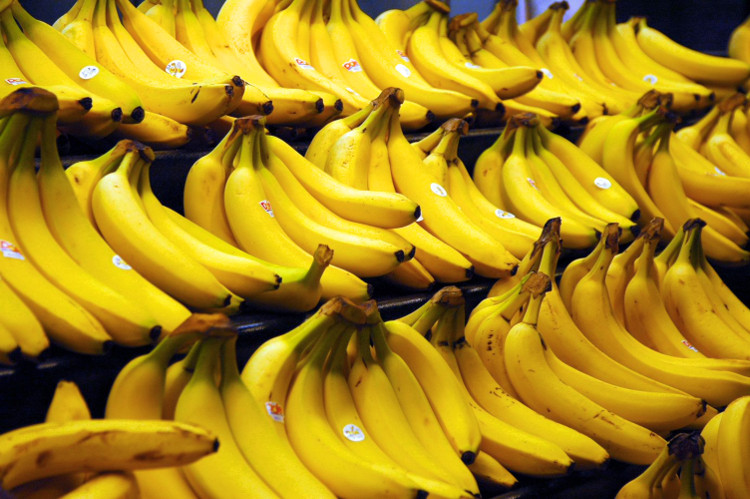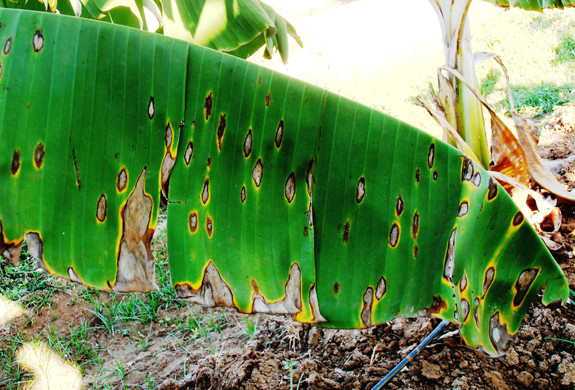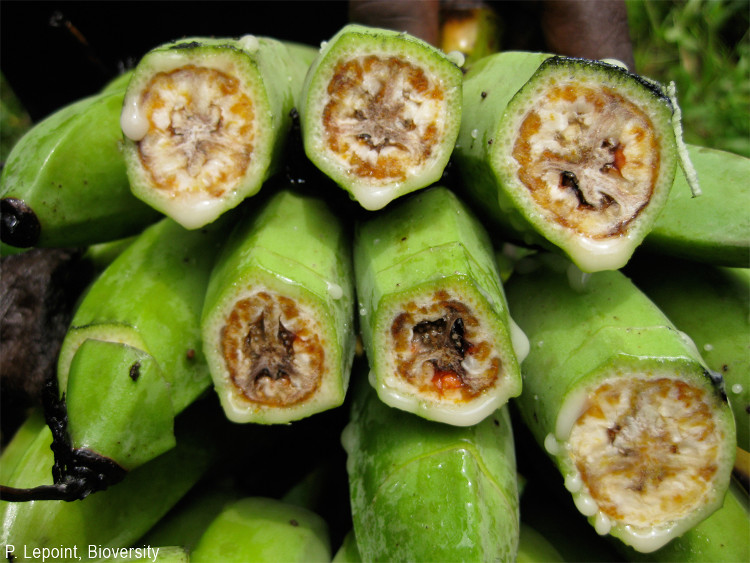The world is going to have to stop bananas in the next decade?
The study, published in the journal PLOS Genetics, reported that some fungal pathogens can cause mass death of bananas.
The botanist Ioannis Stergiopoulos from the University of California said the team found that two of the three banana fungi have become more dangerous by increasing their ability to interfere with metabolism and remove plant nutrients. They seem to have adapted very quickly as a host.

Sigatoka mushroom has reduced up to 40% of bananas worldwide.
Bananas are one of the five major foods in the world. About 100 million tons are produced annually in 120 countries. Thanks to the popularity, most people will always be aware that bananas are always available. In fact, Stergiopoulos worried that the global banana industry could be wiped out in just 5-10 years because fungi spread everywhere. At present, Sigatoka mushroom has reduced yields by 40%.

Leaf spot on bananas.

Bananas are sick.
Three variants of Sigatoka, yellow fungus and leaf spot fungus, especially black fungus are the biggest danger , causing farmers to use up to 50 different pesticides to control the disease. Some do not have the ability to buy pesticides, so the output is likely to decline. Moreover, taking drugs also poses risks to the environment and health.
Worse, all bananas are now structurally modified and have the same genetic pattern. When attacked by pests, they are certainly hard to resist. Stergiopoulos analyzed the gene sequences of fungi and found that they also neutralized immunity, inhibited metabolism, produced enzymes that destroyed cell walls and consumed sugar in bananas.
"This is the first time we have seen how genetic mechanisms and fungal patterns have evolved, " Stergiopoulos said.
- 8 reasons you should eat bananas every day
- Admire the unique banana fruit of purple fruit in Hanoi
- Marvel at the most exotic and mysterious banana varieties in the world
- Peeling bananas is not difficult but the truth is still full of people doing
- Breeding new bananas to save hundreds of thousands of children worldwide
- The reason for eating bananas is better than taking western medicine
- Dietitian: Don't be foolish to eat banana instead of breakfast
- Eat red bananas better than yellow bananas
- How to make the most of the benefits of bananas
- Science proves we're going to have no bananas to eat
- The reason the whole world is gradually turning to banana peels
- Why are bananas bent?
 Why do potatoes have eyes?
Why do potatoes have eyes? 'Tragedy' the world's largest carnivorous life: Death becomes ... public toilet
'Tragedy' the world's largest carnivorous life: Death becomes ... public toilet Tomatoes were once considered 'poisonous' for 200 years
Tomatoes were once considered 'poisonous' for 200 years Detecting microscopic parasites on human face
Detecting microscopic parasites on human face